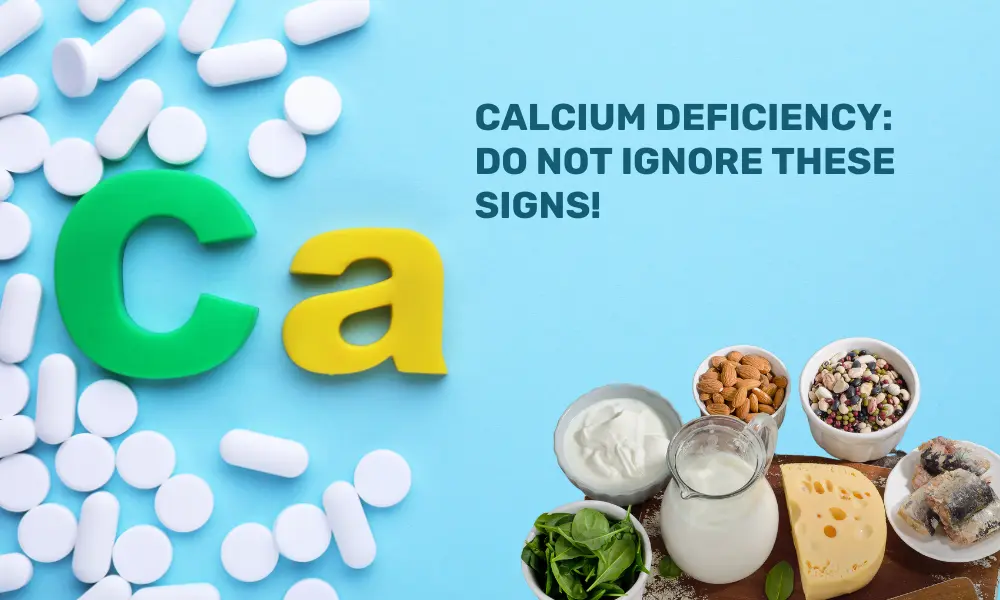Calcium is an important nutrient that keeps our bones strong and healthy. Healthy bones are essential for a good and long life. A deficiency of this vital mineral may lead to a condition known as Hypocalcemia.
Hypocalcemia may cause various signs and symptoms. Not only does it affect our bones, but it also causes dangerous changes in our eyes and brain, which are irreversible.
According to experts, calcium deficiency does not cause any early symptoms. It is usually mild on the onset, but without treatment, it may worsen or become life-threatening.
What are the complications of calcium deficiency?
Doctors say calcium deficiency is linked to:
-
Dental issues
-
Mild joint pains
-
Fractures
-
Seizures
-
Disability
Signs of Calcium Deficiency
Here are a few early warning signs that you should not ignore.
-
Extreme Fatigue: If calcium levels are extremely low in our body, it can cause extreme fatigue and tiredness, a lack of energy, and an overall feeling of sluggishness. According to doctors, this recurrent condition can cause immense sleep issues and insomnia. Fatigue associated with a calcium deficiency also involves light-headedness, dizziness, and brain fog.
-
PMS Related Issues: Women with low levels of calcium in their body have severe premenstrual syndrome or PMS. According to recent studies, women report improved mood and reduced fluid retention rates after regularly taking calcium daily for at least two months.
-
Mental Health Issues: According to experts, calcium deficiency can lead to extreme mood disorders, including depression and anxiety.
-
Osteopenia and Osteoporosis: We need a regular calcium intake to keep our bones in good condition. However, low levels of calcium can make the bones brittle and prone to injury. One may also develop osteopenia – a reduction of mineral density in the bones, which in the long run cause of osteoporosis – a painful condition.
-
Muscle aches: If an individual has calcium deficiency, they may suffer from:
-
Severe aches and cramps in your muscles
-
The feeling of numbness and tingling around the mouth, hands, arms, feet, and legs
-
Pain in thigh and arms when walking or moving
A long-term calcium deficiency causes:
-
Extremely dry, itchy skin
-
Broken nails or brittle nails
-
Coarse hair
-
Hair falls in patches
-
Eczema or skin inflammation that can lead to itchy or dry patches
Preventing Calcium Deficiency
We can prevent calcium deficiency by including good source of calcium in our everyday diet. While adding calcium sources in our diet, one must be cautious about the saturated and trans-fat content in the source. One must prefer low-fat or fat-free options to reduce risk of developing high cholesterol and heart disease. For professional guidance on dietary tips, CLICK HERE.
FAQ on Calcium Deficiency
What are two signs of low calcium?
Brittle nails and frequent muscle cramps accompanied by bone pain, especially at joints, indicate low calcium levels.
How to detect calcium deficiency?
-
Extremely dry, itchy skin
-
Broken nails or brittle nails
-
Coarse hair
-
Hair fall in patches
-
Eczema or skin inflammation
What are the symptoms of a calcium deficiency on the skin?
Extremely dry, itchy skin and brittle nails are some symptoms of calcium deficiency on the skin.
Can calcium deficiency be cured?
Yes, it can be treated by maintaining good calcium sources and supplements.





